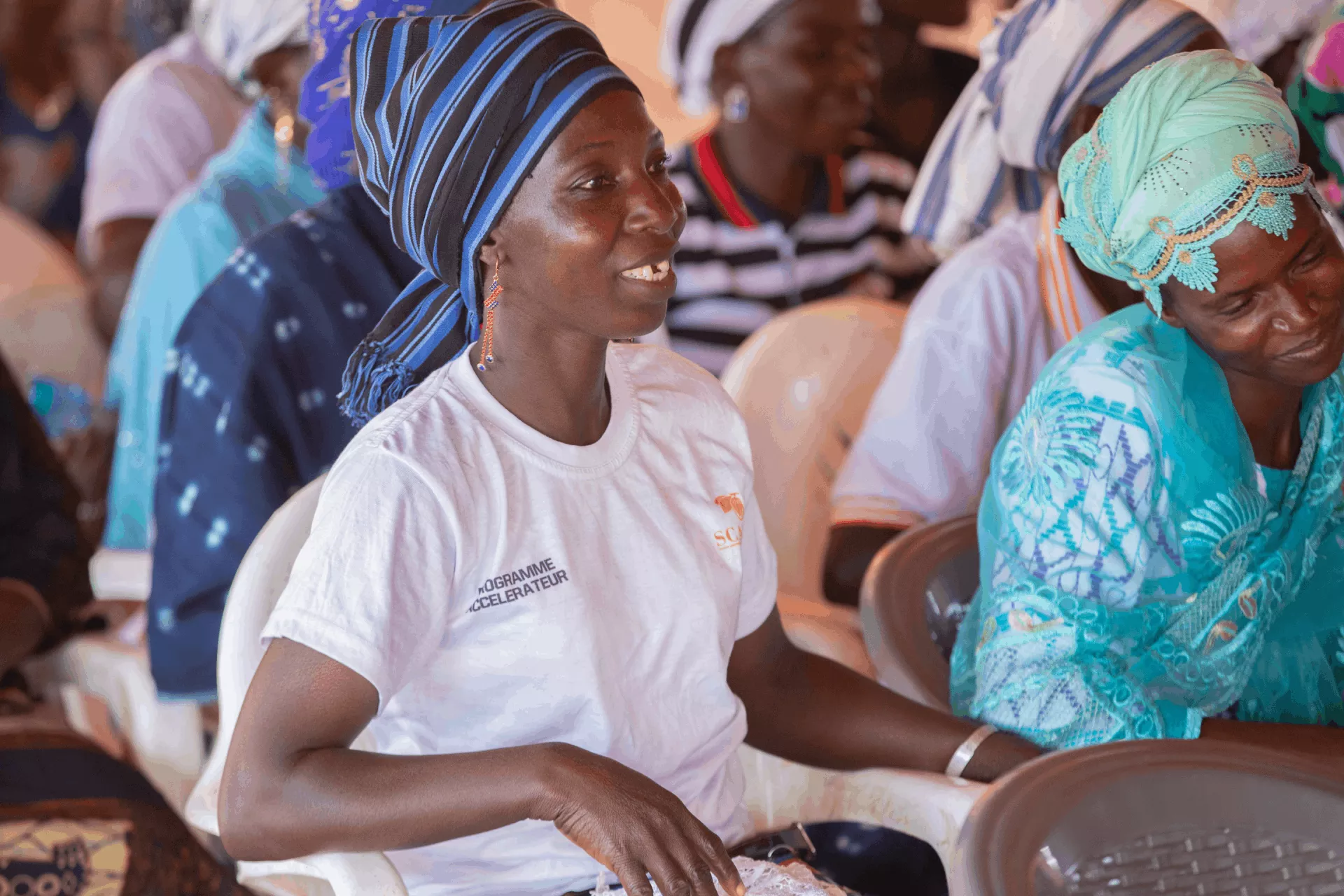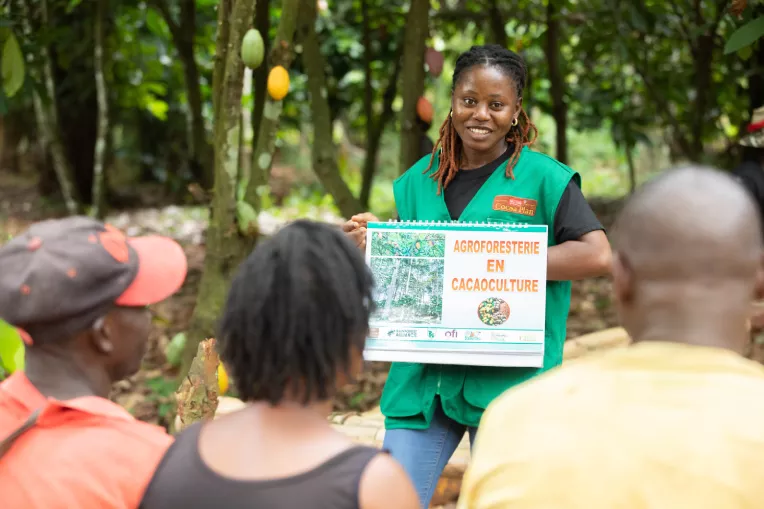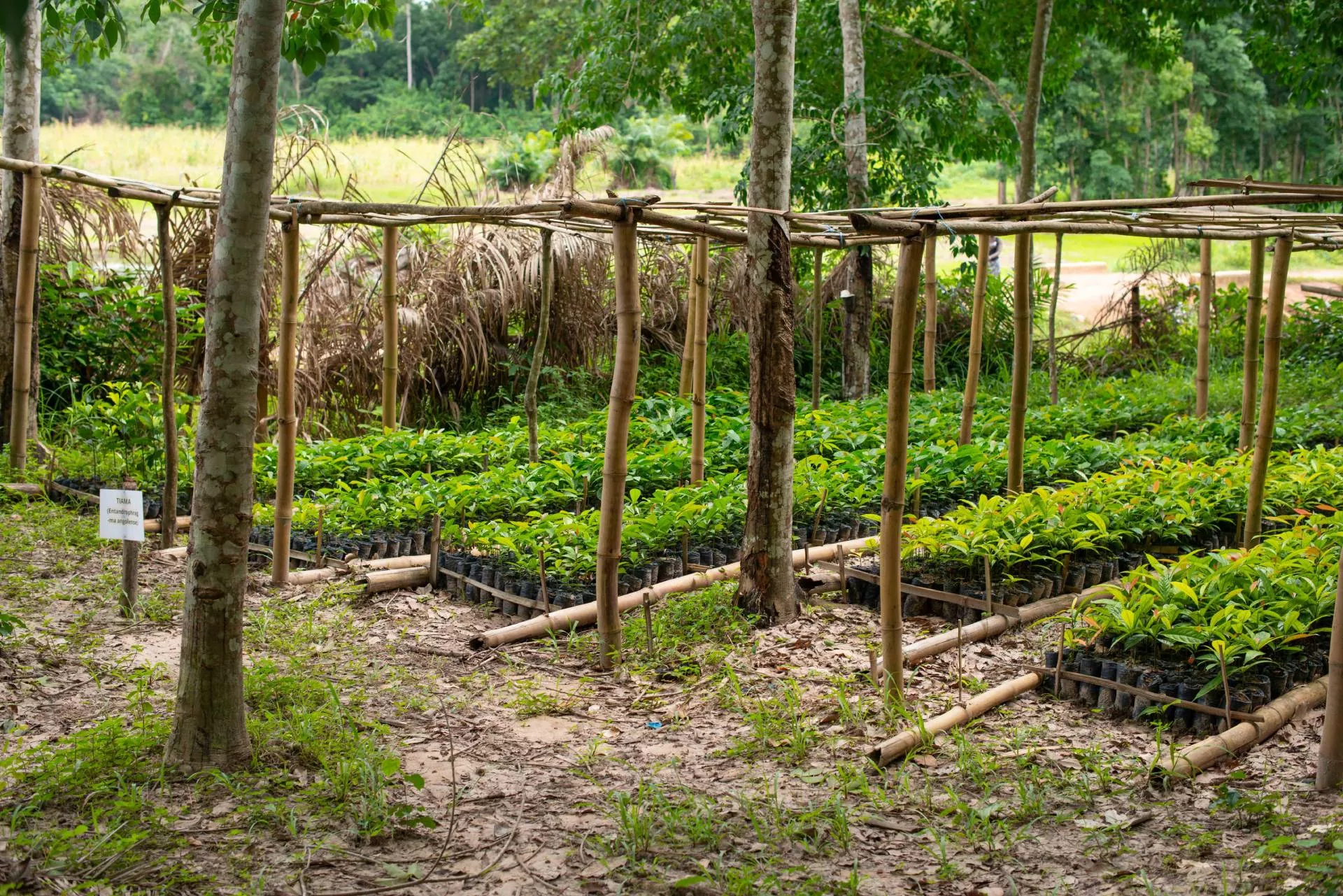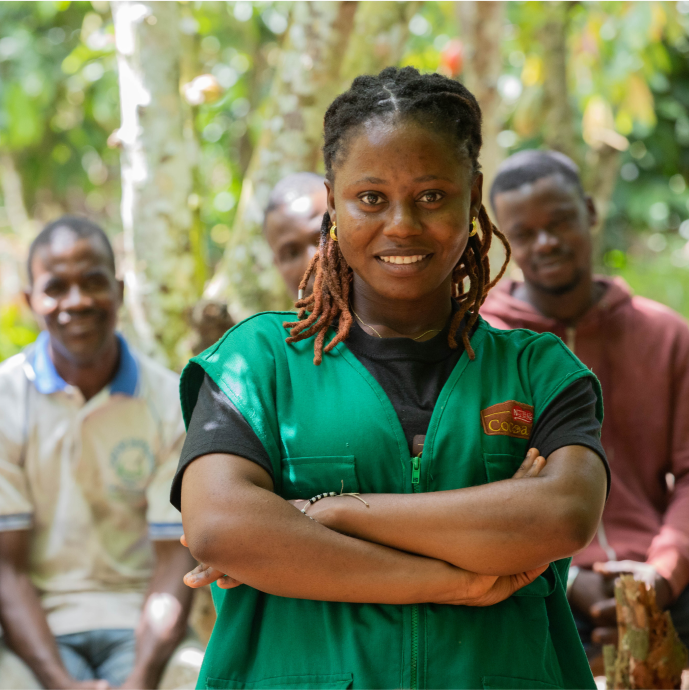Add view

Good Agricultural Practices
The Journey Behind Your Chocolate: Introducing the Nestlé Cocoa Plan
The Nestlé Cocoa Plan was launched in 2009 and now counts more than 15 years of experience in the field. So far, the program has engaged with more than 180 000 farmers in 11 origin countries, covering more than 298,000 tons of cocoa in 2024.

Good Agricultural Practices
Pruning And Sustainable Cocoa Production
Selectively pruning degraded and diseased branches can help improve overall yield and quality of cocoa pods from older trees. By promoting pruning, farmers can divesify incomes while limiting crop disease and loss, to great effect.

Women Empowerment
Empowering Women To Drive Income Diversification
Enrolling children from 6-16 years old into school is one of the central incentive pillars of the Income Accelerator Program. By helping women get their children to school, we can ensure incentives payments are used to fund what matters the most.

Good Agricultural Practices
Farmer Training Program
Engagement with farmers is a key pillar of the Nestlé Cocoa Plan. We work directly with them to address gaps in their knowledge on a wide range of subjects, helping to improve safety, health and livelihoods.

Diversified Income
The Benefits of Beekeeping
Work can be seasonal for cocoa farmers in West Africa, with incomes slowing down outside of harvest periods. Beekeeping can give communities a low-space and low-expense source of additional income.

Forest Positive
Protecting and Restoring the West Africa’s Cavally Forest
The Cavally Forest Reserve is one of the largest of 234 classified forests in Côte d’Ivoire. In 2020, Nestlé began working alongside local people to protect and restore this dense landscape with great results.
